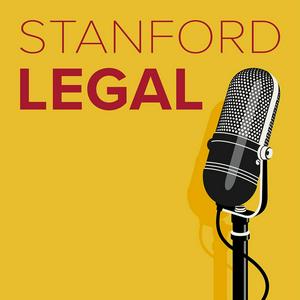In a world where confidence is rewarded and humility can feel like a liability, Stanford Law professor Robert MacCoun argues for something radical: fewer unwavering opinions, more critical reflection, and a better way to disagree. On Stanford Legal, MacCoun joins co-hosts Pamela Karlan and Diego Zambrano for a conversation about how “habits of mind” borrowed from science can help citizens, lawyers, and policymakers think more clearly and function more effectively in a pluralistic society.
MacCoun is the James and Patricia Kowal Professor of Law at Stanford Law School, a professor by courtesy in Stanford’s Psychology Department, and the university’s senior associate vice provost for research. Trained as a social psychologist, his work sits at the intersection of law, science, and public policy, with decades of research on decision-making, bias, and the social dynamics that shape how evidence is interpreted. In the episode, he draws on his most recent book, Third Millennium Thinking: Creating Sense in a World of Nonsense, co-authored with Nobel Prize–winning physicist Saul Perlmutter and philosopher John Campbell, to explain why probabilistic thinking, intellectual humility, and what he calls an “opinion diet” are essential tools for modern civic life.
Links:
Robert MacCoun >>> Stanford Law page
Third Millennium Thinking >>> Stanford Law page
Connect:
Episode Transcripts >>> Stanford Legal Podcast Website
Stanford Legal Podcast >>> LinkedIn Page
Rich Ford >>> Twitter/X
Pam Karlan >>> Stanford Law School Page
Diego Zambrano >>> Stanford Law School Page
Stanford Law School >>> Twitter/X
Stanford Lawyer Magazine >>> Twitter/X
(00:00:00) Introduction and Noise vs. Bias
(00:04:42) The Power of Probabilistic Thinking
(00:12:20) Juries, Community Judgment, and Reasonable Doubt
(00:13:23) Habits of Community
(00:25:08) Motivation, Tools, and Decision Processes
(00:26:14) When Evidence Won’t Settle It
Hosted by Simplecast, an AdsWizz company. See pcm.adswizz.com for information about our collection and use of personal data for advertising.


